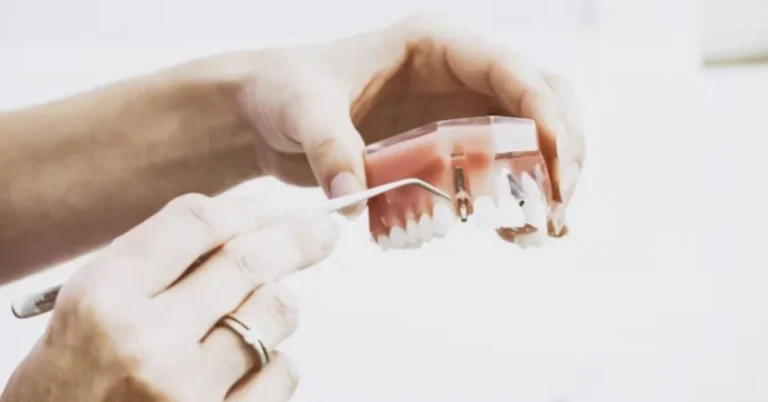
A pinched nerve in the hip can be a frustrating and often painful condition that disrupts daily activities, affects mobility, and impacts overall quality of life. The hip is a central joint in the body’s movement chain, supporting weight and facilitating motions like walking, running, bending, and twisting. Because of its complex anatomy—where muscles, ligaments, bones, and nerves intersect—this area is vulnerable to compression injuries. When a nerve becomes compressed or irritated within or near the hip region, the result is what people commonly describe as a “pinched nerve in the hip.”
Understanding this condition involves more than simply identifying the pain. It requires examining the underlying anatomy, potential causes, specific symptoms, and how different lifestyle and medical interventions can provide relief. While some cases resolve quickly with rest and self-care, others may persist, requiring more targeted therapy or even surgical intervention.
In this guide, we will explore the condition in depth, covering anatomy, triggers, signs, diagnostic methods, treatment approaches, and ways to prevent recurrence. By the end, you will have a clearer understanding of what a pinched nerve in the hip is, how to identify it, and what steps to take for recovery and long-term health.
1. Anatomy of the Hip and Surrounding Nerves
The hip joint is a ball-and-socket joint formed where the head of the femur (thigh bone) fits into the acetabulum of the pelvis. Around this joint are thick bands of ligaments that stabilize movement, layers of muscle that provide strength and control, and a network of nerves that transmit signals between the lower body and the brain.
Several major nerves pass near or through the hip area, and each can be affected differently by compression:
- Sciatic Nerve: The largest nerve in the body, running from the lower spine through the buttocks and down each leg. Compression can cause radiating pain along its path.
- Femoral Nerve: Runs through the front of the hip, affecting thigh strength and sensation.
- Obturator Nerve: Passes through the pelvis to the inner thigh, playing a role in leg movement.
- Lateral Femoral Cutaneous Nerve: Provides sensation to the outer thigh; compression here leads to a condition called meralgia paresthetica.
A pinched nerve occurs when one of these nerves is compressed by surrounding structures—whether bone, cartilage, muscle, or inflamed tissue. The location and severity of the compression determine the symptoms and treatment needed.
2. Causes of a Pinched Nerve in the Hip
Many factors can lead to nerve compression in the hip region. Some are related to acute injury, while others develop gradually due to lifestyle or chronic conditions.
a) Herniated or Bulging Discs
Discs in the lumbar spine act as cushions between vertebrae. When a disc bulges or ruptures, its material can press on nerves leading to the hip, causing referred pain.
b) Arthritis and Bone Spurs
Osteoarthritis can wear down cartilage, leading to bone-on-bone contact and the formation of bone spurs. These spurs may press on nearby nerves.
c) Muscle Tightness or Spasms
Overly tight hip or gluteal muscles—such as the piriformis—can trap the sciatic nerve, leading to symptoms similar to sciatica.
d) Injury or Trauma
Falls, sports injuries, or accidents can cause swelling or displacement of tissue, compressing nearby nerves.
e) Poor Posture and Repetitive Movements
Prolonged sitting, especially with poor ergonomics, or repetitive motions like certain sports can gradually irritate and compress nerves.
f) Obesity
Extra weight increases pressure on joints and surrounding tissues, raising the risk of nerve compression.
3. Symptoms of a Pinched Nerve in the Hip
The symptoms vary based on the specific nerve involved and the severity of compression. Common signs include:
- Localized Hip Pain: Often sharp or burning in nature.
- Radiating Pain: Pain may travel to the thigh, buttock, or even down the leg.
- Numbness or Tingling: Sensory changes in the hip, thigh, or lower leg.
- Muscle Weakness: Difficulty lifting the leg, standing, or walking for extended periods.
- Increased Pain with Movement: Activities like walking, bending, or even sitting may worsen discomfort.
The pattern of these symptoms can help clinicians identify which nerve is affected. For example, sciatic nerve compression often produces pain running down the back of the leg, while femoral nerve compression tends to affect the front of the thigh.
4. Diagnosing a Pinched Nerve in the Hip
Accurate diagnosis is essential for effective treatment. Healthcare providers often begin with a detailed medical history and physical examination.
Diagnostic steps may include:
- Physical Exam: Tests for strength, reflexes, range of motion, and pain triggers.
- Imaging Tests: MRI or CT scans can show structural causes like herniated discs or bone spurs.
- Nerve Conduction Studies: Measure the speed of electrical signals in nerves to identify damage or compression.
- Electromyography (EMG): Assesses muscle response to nerve signals.
Early and accurate diagnosis can prevent further nerve damage and improve recovery outcomes.
5. Treatment Options for a Pinched Nerve in the Hip
The treatment approach depends on the cause, severity, and duration of symptoms. Many cases respond well to conservative, non-surgical measures, while others may require medical intervention.
a) Rest and Activity Modification
Short-term rest can reduce inflammation. Avoiding activities that aggravate symptoms gives the nerve a chance to recover.
b) Physical Therapy
A physical therapist can design stretching and strengthening exercises to relieve pressure on the nerve, improve posture, and restore mobility.
c) Medications
- Anti-inflammatories: Reduce swelling and relieve pain.
- Muscle Relaxants: Help ease muscle tightness contributing to nerve compression.
- Neuropathic Pain Medications: Target nerve-related pain specifically.
d) Heat and Cold Therapy
Ice can reduce inflammation in the first days, while heat can improve blood flow and relaxation later on.
e) Corticosteroid Injections
For persistent inflammation, targeted injections may provide relief and allow participation in rehabilitation.
f) Surgery
Reserved for severe cases where nerve compression is caused by structural problems that do not improve with conservative measures. Surgery may involve removing bone spurs, repairing discs, or releasing tight tissues.
6. Lifestyle Adjustments and Prevention
Preventing a pinched nerve in the hip often comes down to maintaining healthy body mechanics and overall fitness.
Prevention tips include:
- Maintain a healthy weight to reduce joint pressure.
- Practice good posture when sitting and standing.
- Incorporate regular stretching for hips, hamstrings, and lower back.
- Strengthen core and hip muscles to support proper alignment.
- Use ergonomic chairs and supportive footwear.
- Avoid prolonged sitting; take breaks to move every hour.
These habits can help protect the hips and surrounding nerves from unnecessary strain.
7. Recovery Outlook
With proper care, most people recover from a pinched nerve in the hip within weeks to a few months. The key is addressing the underlying cause and following through with treatment recommendations. Chronic or untreated nerve compression can lead to lasting nerve damage, so early attention is critical.
Conclusion
A pinched nerve in the hip can be painful and disruptive, but it is often manageable with the right combination of rest, targeted therapy, and lifestyle adjustments. Understanding the anatomy, recognizing early symptoms, and seeking prompt medical advice are the most important steps toward a full recovery. By taking preventive measures and addressing risk factors, you can reduce the chances of recurrence and keep your hips—and the rest of your body—moving comfortably.
5 Frequently Asked Questions (FAQs)
1. How long does it take to recover from a pinched nerve in the hip?
Most people recover within a few weeks to a few months, depending on the cause and adherence to treatment.
2. Can exercise make a pinched nerve in the hip worse?
Yes, certain high-impact or repetitive movements can aggravate symptoms. A physical therapist can guide safe exercises.
3. Is surgery always required for a pinched nerve in the hip?
No, most cases improve with conservative care; surgery is considered only for severe or persistent compression.
4. Can poor posture cause a pinched nerve in the hip?
Yes, prolonged poor posture can create imbalances that increase pressure on nerves over time.
5. Are there home remedies for a pinched nerve in the hip?
Rest, gentle stretching, heat/cold therapy, and over-the-counter anti-inflammatories can help, but medical evaluation is important.
For more information, click here.







